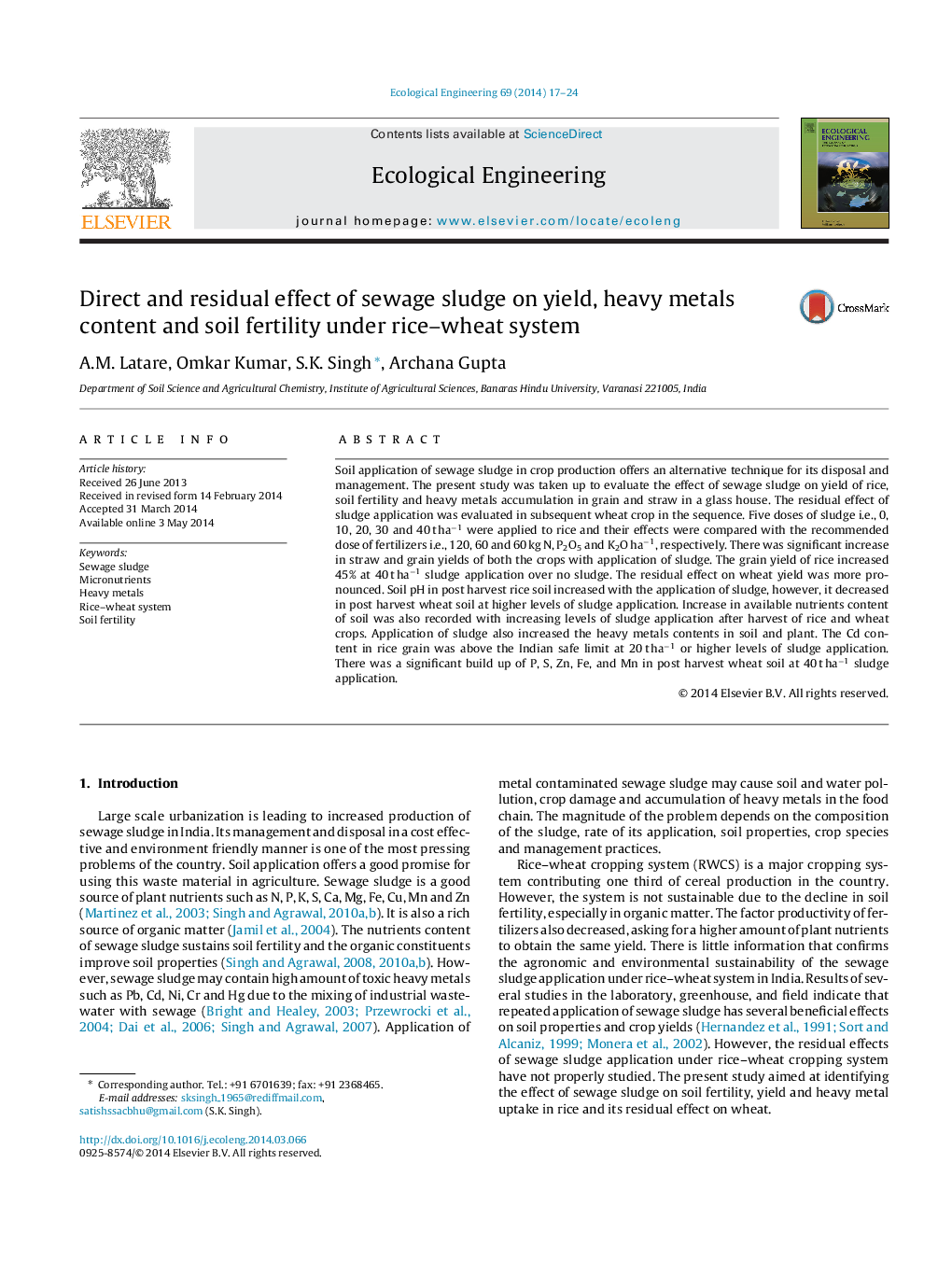| کد مقاله | کد نشریه | سال انتشار | مقاله انگلیسی | نسخه تمام متن |
|---|---|---|---|---|
| 4389370 | 1618030 | 2014 | 8 صفحه PDF | دانلود رایگان |
• Use sewage sludge in rice–wheat increased crop yield, organic carbon and nutrient content of soil.
• Higher doses of sewage sludge (30 and 40 t ha−1) increased Cd content in rice grain above the safe limit.
• Residual effect of higher doses of sludge caused build up of N, K, S and Zn contents in soil even after harvest of wheat.
• Micronutrients in grain of wheat grown on residual sludge were more as compared to rice.
Soil application of sewage sludge in crop production offers an alternative technique for its disposal and management. The present study was taken up to evaluate the effect of sewage sludge on yield of rice, soil fertility and heavy metals accumulation in grain and straw in a glass house. The residual effect of sludge application was evaluated in subsequent wheat crop in the sequence. Five doses of sludge i.e., 0, 10, 20, 30 and 40 t ha−1 were applied to rice and their effects were compared with the recommended dose of fertilizers i.e., 120, 60 and 60 kg N, P2O5 and K2O ha−1, respectively. There was significant increase in straw and grain yields of both the crops with application of sludge. The grain yield of rice increased 45% at 40 t ha−1 sludge application over no sludge. The residual effect on wheat yield was more pronounced. Soil pH in post harvest rice soil increased with the application of sludge, however, it decreased in post harvest wheat soil at higher levels of sludge application. Increase in available nutrients content of soil was also recorded with increasing levels of sludge application after harvest of rice and wheat crops. Application of sludge also increased the heavy metals contents in soil and plant. The Cd content in rice grain was above the Indian safe limit at 20 t ha−1 or higher levels of sludge application. There was a significant build up of P, S, Zn, Fe, and Mn in post harvest wheat soil at 40 t ha−1 sludge application.
Journal: Ecological Engineering - Volume 69, August 2014, Pages 17–24
